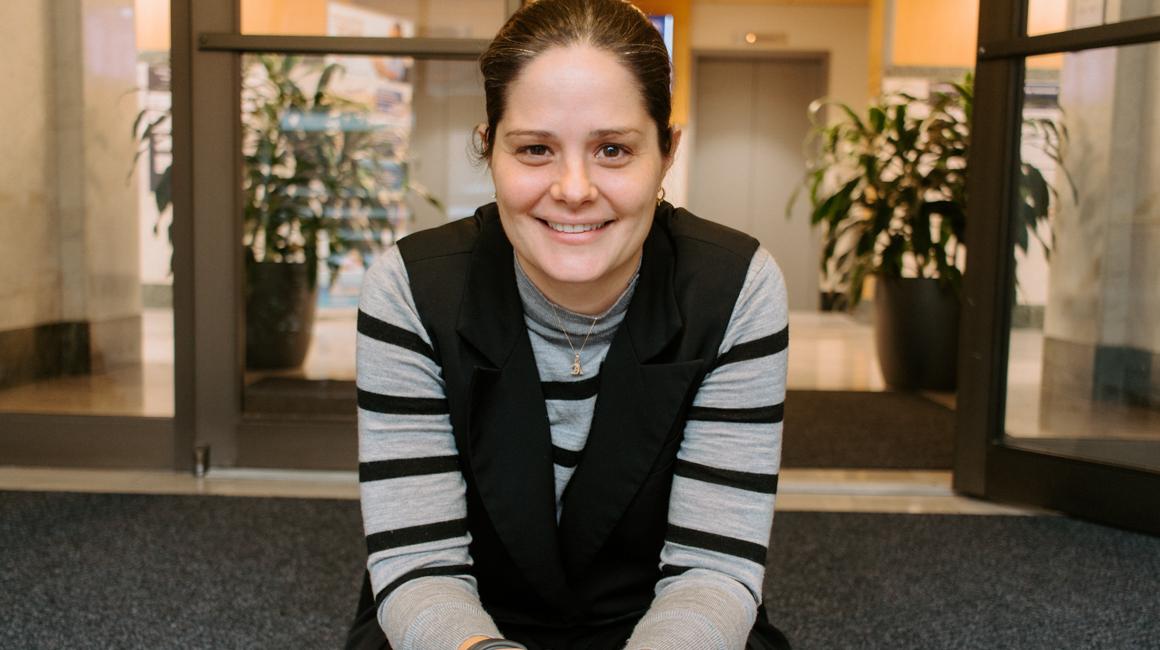Get to Know Your Professor: Dr. Bridget Green
Get to know Special Education Associate Professor and Executive Director of the Institute for Disability Empowerment and Advocacy Dr. Bridget Green as she shares her experiences throughout her teaching journey, what she loves about the Duquesne community and some insight from her hobbies and life outside of the classroom.
Dr. Bridget Green shares how she was first inspired to become a teacher as a high school student herself. She also discusses her work in the field preparing students for their GED and then in the higher education classroom now as a special education professor and researcher here in our Duquesne University School of Education. She works closely with our graduate special education and undergraduate dual certification programs.
Even outside of the education field Dr. Green is continually learning, observing and looking to make an impact in everything she does. Learn about Dr. Green and her work.
Q&A with Dr. Green
Also, some of my colleagues are absolutely incredible people. It is hard not to be motivated by my colleagues like Drs. Kara McGoey and Elizabeth McCallum. They have taught me the value and importance of interdisciplinary research. I get to go to work, it is not a competition and I am constantly reminded to do and be better.
Beyond your self-development, I would recommend incoming students look at their education and communities. Take time to understand and learn how systems are built and upheld. Ask questions to understand the why behind what is happening in the communities you are in. There is ugly in the world, but you have ample opportunities to see and develop a better, more equitable approach to make change.
The valuable lesson I learned changed my practice. I began asking myself who the best practices are for in education. Educators should use what they acquire to guide their teaching, and also take time to learn from their students if they are leaving anyone out. In all of my classes I now ask, “Okay, so who did we leave out?” I am a firm believer that feedback from students is essential to improving teaching and learning.
I am big on family. I am lucky to have kids who force me to see the simplicity of life. My children remind me to slow down and love what is in front of me, which pulls me out of the day-to-day comparisons, competition or chaos. For example, during the fall, we look forward to our walks and collecting leaves for artwork. We appreciate all the lovely shades of leaves. We make pictures out of the leaves to give to others. For me, there is beauty in building or creating for another person.
Carpentry Work
The love I have for carpentry may be surprising to students. Building things with wood is fun. There is something beautiful about making a mistake in carpentry and fixing it or leaving it. The first table was out of wormy chestnut from a torn-down barn. I bought the wood off Craigslist and built it as a wedding gift for my husband. Initially, the wood was imperfect and messy. As I worked on it, the characteristics of reclaimed wood really start to show. It was my first table and was horribly imperfect. That said, a carpenter who gave me free advice reminded me that I can see imperfections that no one else cares about and to look at the value I made. There is beauty in taking time to slow down and be intentional about a plan that will impact the result. I have transferred that idea to teaching. I like to slow down and think about how the lessons planned will land in the classroom. Sometimes my lessons do not go as planned, so I need to ask myself am I looking for imperfections or am I looking at the value added?
Outside of content, when the weather is nice it is lovely to hold class outside. I take my daughters to women’s games and they cheer for my students. When it is nicer, just going for a walk to discuss content ideas or research is nice with the size campus, but I should note I do try to avoid the hills.
What is your favorite thing to do in the city?
With my kids, probably the blue slide at Frick Park. Watching the pure glee sliding down a metal slide on old cardboard boxes can make any bad day great.
Where is your favorite place to eat in the city?
Eat’n Park is my favorite place to eat because there is a sense of community inside the establishment. There is beauty in everything. Generations gather for food and conversations. There is history and fond memories for me that allows me to share stories about my grandparents with my children. Each visit becomes storytime.
Duquesne University's College of Osteopathic Medicine includes people with disabilities, of all ages, as participants in simulation exercises. It is beneficial for students to learn and understand that communication is key. Questions can be asked in a variety of ways. Knowledge can be gained beyond the textbook. Centering the voice of a person with a disability as a future doctor reinforces the importance of my work.
There is value in bringing the voices of people with disabilities to the forefront of learning.


